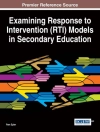Racial and ethnic categories have appeared in recent scientific work in novel ways and in relation to a variety of disciplines: medicine, forensics, population genetics and also developments in popular genealogy. Once again, biology is foregrounded in the discussion of human identity. Of particular importance is the preoccupation with origins and personal discovery and the increasing use of racial and ethnic categories in social policy. This new genetic knowledge, expressed in technology and practice, has the potential to disrupt how race and ethnicity are debated, managed and lived. As such, this volume investigates the ways in which existing social categories are both maintained and transformed at the intersection of the natural (sciences) and the cultural (politics). The contributors include medical researchers, anthropologists, historians of science and sociologists of race relations; together, they explore the new and challenging landscape where biology becomes the stuff of identity.
表中的内容
List of Illustrations and Tables
Acknowledgments
Introduction: Ideas in Motion: Making Sense of Identity After DNA
Katharina Schramm, David Skinner, Richard Rottenburg
Chapter 1. ‘Race’ as a Social Construction in Genetics
Andrew Smart, Richard Tutton, Paul Martin, George Ellison
Chapter 2. Mobile Identities and Fixed Categories: Forensic DNA and the Politics of Racialised Data
David Skinner
Chapter 3. Race, Kinship and the Ambivalence of Identity
Peter Wade
Chapter 4. Identity, DNA, and the State in Post-Dictatorship Argentina
Noa Vaisman
Chapter 5. ‘Do You Have Celtic, Jewish, Germanic Roots?’ – Applied Swiss History Before and After DNA
Marianne Sommer
Chapter 6. Irish DNA: Making Connections and Making Distinctions in Y-Chromosome Surname Studies
Catherine Nash
Chapter 7. Genomics en route: Ancestry, Heritage, and the Politics of Identity Across the Black Atlantic
Katharina Schramm
Chapter 8. Biotechnological Cults of Affliction? Race, Rationality, and Enchantment in Personal Genomic Histories
Stephan Palmié
Notes on Contributors
Bibliography
Index
关于作者
Richard Rottenburg holds a chair in Social Anthropology at Martin-Luther-University Halle-Wittenberg and is Max Planck Fellow at the Max Planck Institute for Social Anthropology. He has written and edited books on the Sudan, economic anthropology, the transcultural production of objectivity and theorizing postneoliberal governance. Among these is Far-Fetched Facts: A Parable of Development Aid (2009).












